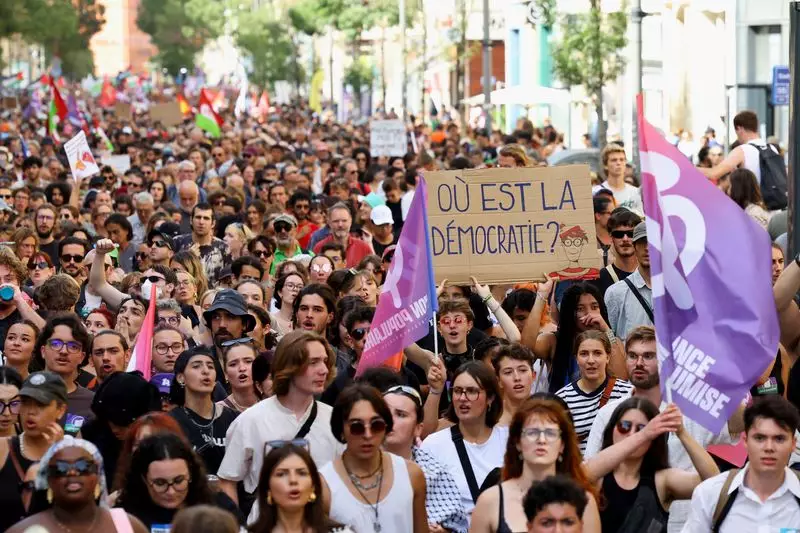Over the weekend, thousands of individuals in France took to the streets in protest of President Emmanuel Macron’s recent decision to appoint Michel Barnier, a center-right figure, as prime minister. This move has sparked outrage from left-wing parties who have accused Macron of manipulating legislative elections to his advantage. Macron’s choice of Barnier follows a tumultuous period after a hung parliament resulted from a legislative election called by Macron.
The left, particularly the far-left France Unbowed (LFI) party, has been vocal in its criticism of Macron, labeling his actions as a denial of democracy and alleging outright theft of the election results. Public sentiment has mirrored this sentiment, with a recent survey revealing that a significant majority of French citizens believe Macron has disregarded the democratic process by appointing Barnier.
By appointing Barnier, Macron has ventured into dangerous territory as his government lacks a clear majority in parliament. This poses significant challenges for Barnier as he attempts to push through much-needed reforms and navigate the complexities of the 2025 budget. Pressure from the European Commission and bond markets to reduce the deficit further complicates the situation.
The appointment of Barnier has set the stage for potential government turmoil, with the possibility of a no-confidence vote looming large. The New Popular Front (NFP) and the far-right National Rally (RN) hold a majority in parliament and could collaborate to oust Barnier through such a vote. This has made RN a crucial player in the formation of the new government, with the party setting conditions for its support.
Macron’s decision to appoint Barnier as prime minister has ignited a firestorm of political unrest in France. The President’s actions have drawn sharp criticism from opposition parties and the public alike, raising concerns about the legitimacy of the government. As the situation unfolds, all eyes will be on Barnier as he navigates the turbulent waters of French politics, facing the constant threat of a no-confidence vote and the task of steering the country through challenging times.

